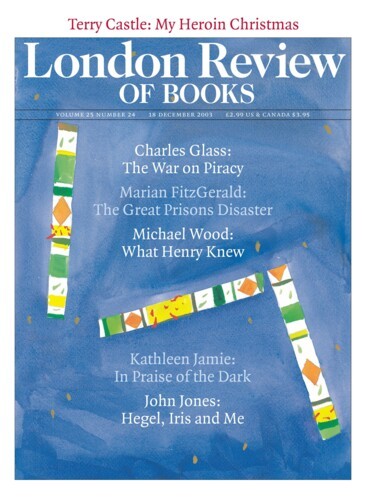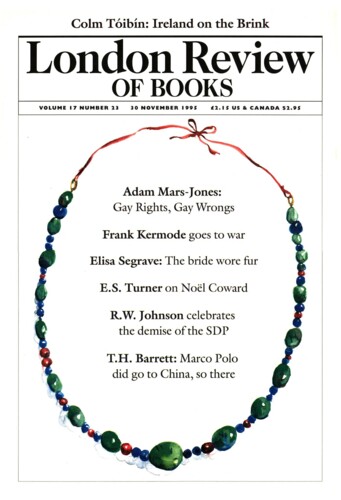Poem: ‘Iguana Days’
John Fuller, 18 December 2003
We have seen this pebble before Though three feet under. From year To year it changes position.
The sea dwindles its contours But not to my brief eye In a mere decade of watching.
Stone keeps its secrets. Its smoothness is a ruse To content us with surface.
At the heart of stone is pure Concentration, which life Is foolishly in love with.
We believe that the stillness comes From its exact...


